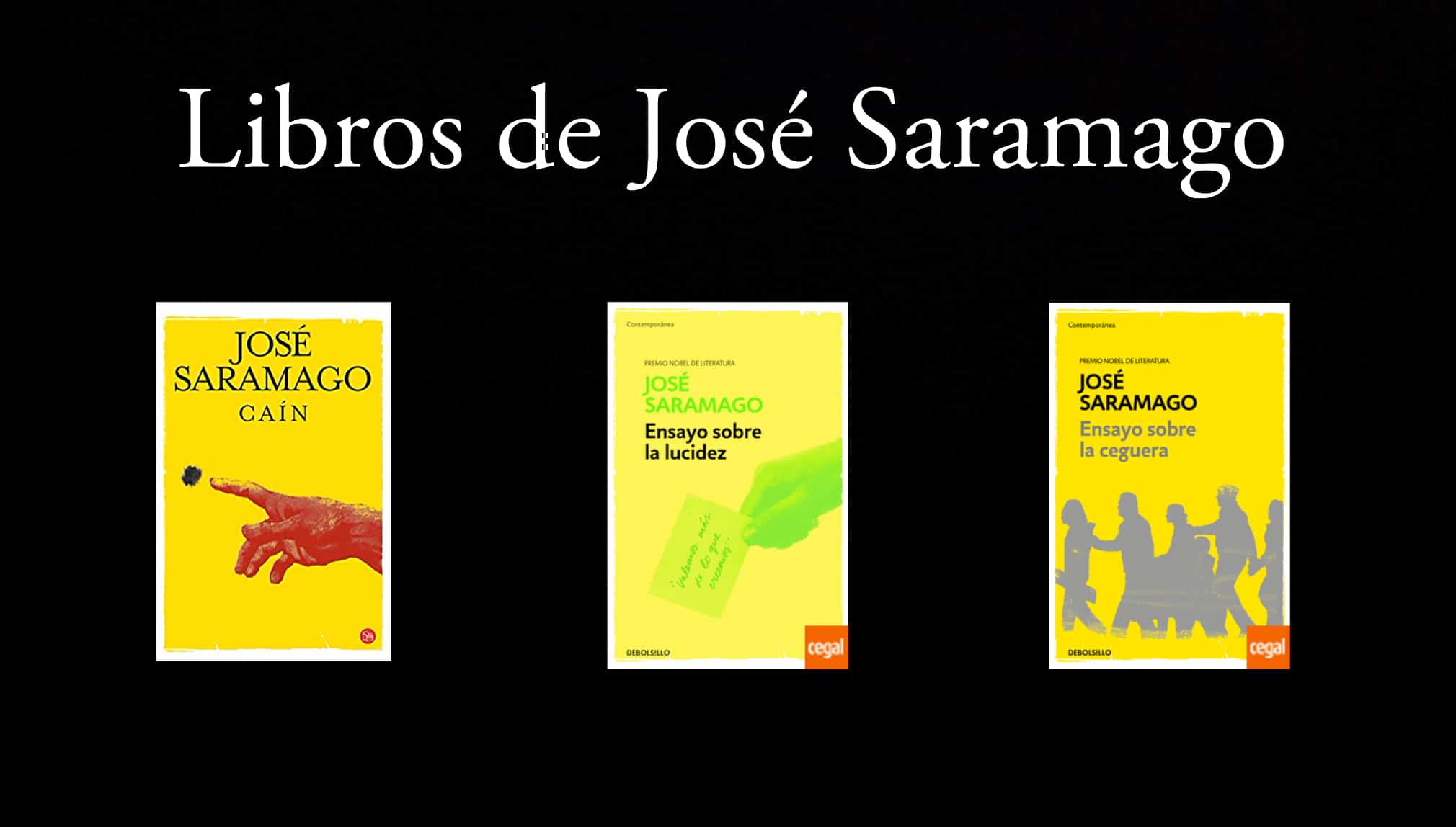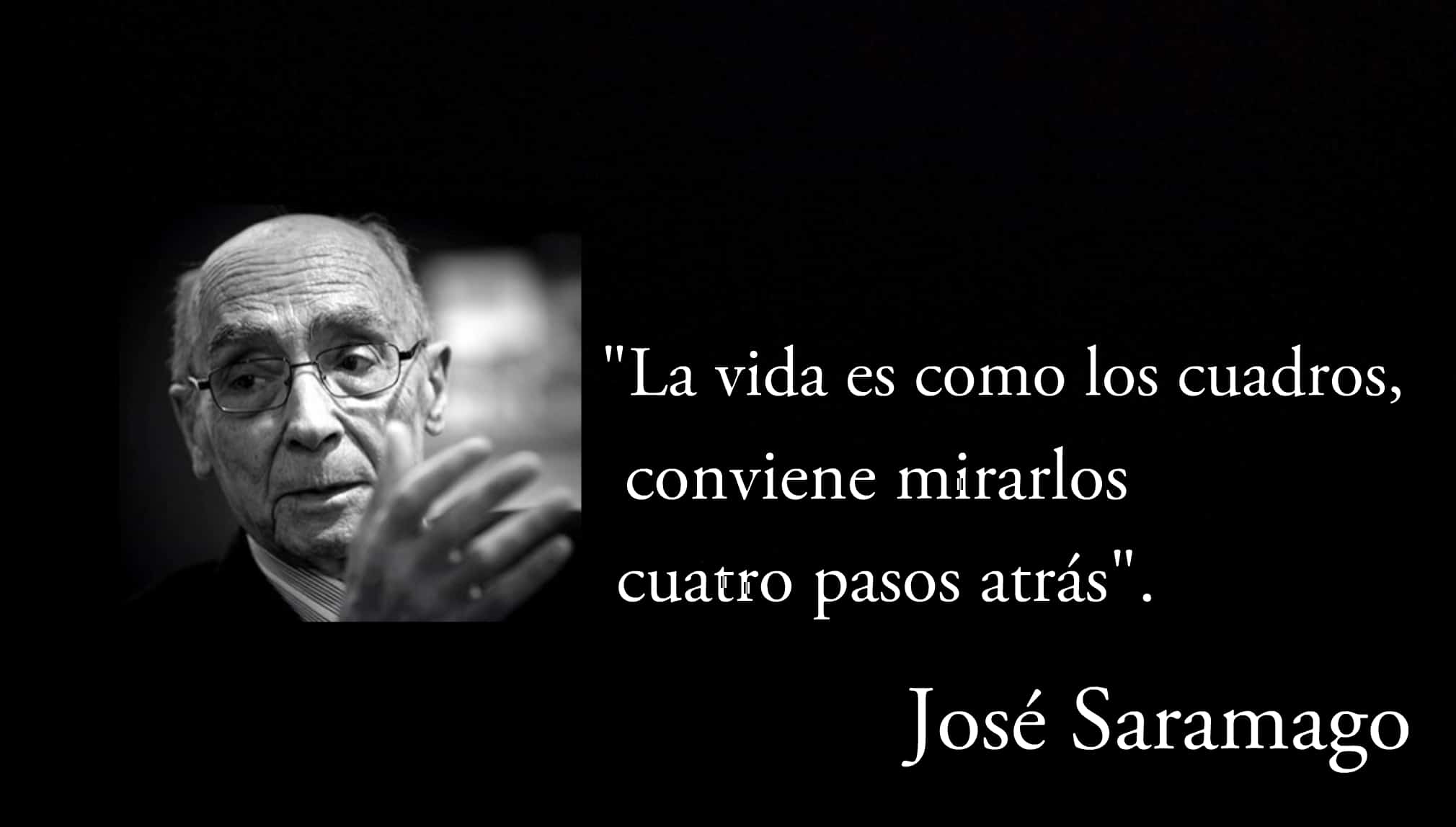
Books by José Saramago
José Saramago's literary publications have covered the multiple professions developed throughout its 87 years of existence. Although the intellectual from Portugal took his time to reach the definitive consecration in 1980, at the age of 57, he reached world fame at the age of 76, after receiving the Nobel Prize for Literature on November 16, 1998 .
Apart from being a prolific writer, the Portuguese author stood out as a journalist, playwright, novelist, poet and historian. According to José Luis Herrera Arciniega (1999), "Prior to the Nobel, his status as a writer had gone beyond the field of literature and had installed him in the position of interlocutor of the media and witness and commentator of political events ...".
Bibliography of José Saramago
Birth and family
José Saramago was born on November 16, 1922 in Azinhaga, a small country village, located in the northeast of Portugal. His parents, José de Souza and María da Piedade, were quite poor. Consequently, they decided to emigrate to Lisbon at the end of 1925, where his father enlisted in the police force. Shortly after arriving in the capital, the eldest son of the family, Francisco, passed away.
Saramago, the outstanding student
The young José stood out for his good grades in an industrial technical school (although his training included humanistic subjects). However, due to financial difficulties in his family, he was forced to leave the classrooms to help with the household finances. His first job was locksmith (blacksmith) mechanic for two years.
Trades of José Saramago
Since the 1940s, he held various trades: debt collector, public health and social assistance officer, editor, translator, and journalist. In 1944 Saramago married Ilda Reis and began the creation of Land of sin, his first novel (published in 1947 without editorial success, coinciding with the birth of his first-born, Violante). Likewise, Saramago completed his second novel Skylight (not published until 2012).
Later, he was a literary critic and cultural commentator for the magazine Seara nova. Those were times of censorship in the Iberian nation. For this reason, his publications and articles were curtailed or banned on several occasions, especially in News diary. In 1966 he became a member of the first board of the Portuguese Writers Association - which he chaired from 1985 to 1994 - and published You have poems.
Political repression of Salazar
Although he was harassed by the Salazar dictatorship, Saramago ruthlessly exposed his leftist ideas in political articles. Likewise, he served as director and literary producer in a publishing house for twelve years. In parallel, he made translations of works belonging to authors such as Baudelaire, Colette, Maupassant and Tolstoi. In 1969 he joined the (then illegal) Communist Party of Portugal and divorced Ilda.
Your role in the Lisbon newspaper
Between 1972 and 1973 he held the positions of editor, political commentator and, for a few months, coordinator of the cultural bulletin of the Lisbon newspaper. A year later he joined the Carnation Revolution that produced the transition to democracy in Portugal. In 1975 he was deputy director of the Diario de noticias and from 1976 Saramago had in writing his only means of support.
Raising do Chão and the long-awaited success
A notable event in José Saramago's literary career was his late consecration in 1980, after the launch of Raising do Chão (Lifted off the ground). It is a novel that masterfully mixes a crude and —almost— poetic narrative about Lavre's workers. The excellent reviews received, plus the success in sales of the book prompted the Portuguese author to publish almost without rest for the next 30 years.

Jose Saramago, Egas Moniz.
Even the testimonies of those closest to him indicate that he wrote until his last days. Finally, José Saramago died at the age of 87 due to a long suffering from leukemia on June 18, 2010, at his residence located in Tías (Lanzarote), Spain. He left a legacy that exceeds two dozen books published in the genres of novel, newspaper, chronicle, short story, theater and poetry.
Characteristics of José Saramago's work
International breadth and scope
The vast majority of José Saramago's books were published outside of his native Portugal. The list of countries is headed by Spain (in Spanish and Catalan), followed by France, the Netherlands, Germany (both in the Western Federal Republic and in the Eastern Democratic Republic), the United Kingdom, Greece, Poland, Bulgaria, USSR, Czechoslovakia (in Czech and Slovak), Norway, Finland, Denmark, Sweden, Israel, Romania, Hungary, and Switzerland.
He also successfully launched books in Japan, the United States, Mexico, Colombia, Argentina, and Brazil. His famous diaries (the Notebooks from Lanzarote), as well as his novels have achieved a lot of popularity among Spanish speakers. Probably, his lesser known works correspond to theater and poetry.
Saramago and his no particular style
According to literary analysts such as Martín Vivaldi or Eduardo Miranda Arrieta, it is very difficult to catalog José Saramago's work due to its length and diversity. In this sense, the limits between one genre and another are practically non-existent in the creations of the Portuguese author, who chose to work under a specific literary style based on the content and objective of his message.
In this regard, Herrera Arciniega stated: “Deciding whether to write a novel or a short story, whether to write poetry, whether to create a play, whether to undertake a chronicle or opt for an essay, has to do with what is intended to express. Yes, it is a matter of technique and styles, as well as training, but also of intentions about what to write… ”.
The richness and expressiveness
José Saramago mixed the possibilities that each genre confers to determine their ways of expression. In its pages there are frequent passages where introversion prevails over action. This aspect is very evident in his novels Gospel according to Jesus Christ (1991) and Essay on blindness (nineteen ninety five); both are narratives with abundant elements of chronicle.
Its versatility
In addition, his literary creation reveals enormous versatility as a writer, despite —in Saramago's own words— having emphasized the making of novels to a greater extent. In many of his chronicles (before his consecration) the undeniable expression of his writing and of his long journalistic career is perceived. Therefore, in Traveler's luggage (1973) the parables used convey the sensation of reading a story.
Excellent use of the language and good documentation
At the same time, Saramago did not abuse rhetorical exuberance or lip service; On the contrary, he used condensation as a tight and effective resource when expressing ideas in a brief and clear way. That is to say, his style perfectly combined the leafiness of his literary side with the concise expression of the journalist. Each virtue was put in the correct line, to opportunely exalt or contain an expression.
José Saramago, the historian and the politician
His leftist thoughts have been referenced within the ideological bases of innumerable socialist political parties in Latin America (MAS in Venezuela or the Workers' Party in Brazil, for example). José Saramago wrote from a mainly humanist stance and in his interviews (for example, in I am a hormonal communist, with Jorge Halperín - 2002) there is a clear anti-imperialist slogan.
However, even when he blamed the United States for being the cause of most of the global ills of the last decades, Saramago always maintained a critical position regarding the lack of depth and congruence of the Latin American left. Even in an interview (2002) with Eduardo Miranda Arrieta he said that “Today's left is the absence of ideas. And there is no possibility of changing things without ideas ”.

Quote by José Saramago.
One of the famous phrases attributed to Saramago reads "If man is formed by circumstances, then circumstances must be formed humanly." And he adds, “Capitalism doesn't do it, it wasn't born for that. And it would be better if we recognized that socialism has not done it either ... the circumstances that millions of people are experiencing are not human, they have never been and everything indicates that they will not be ”.
In some of his latest novels -The cave (2000) The duplicate man (2002), Essay on lucidity (2004) and the death intermitence (2005) - José Saramago explores issues such as consumerism, the loss of identity in a mass society, the limits of democracy and the promotion of functional illiteracy as a system of domination.
Books by José Saramago
Below is a list of Saramago's works, many of them worthy of being among the 100 best books ever.
Novels
- Land of sin (1947)
- Manual of painting and calligraphy (1977)
- Lifted off the ground (1980)
- Memories of the convent (1982)
- The year of the death of Ricardo Reis (1984)
- The stone raft (1986)
- History of the siege of Lisbon (1989)
- The Gospel according to Jesus Christ (1991)
- Essay on blindness (1995)
- All the names (1997)
- The cave (2000)
- The duplicate man (2004)
- Essay on Lucidity (2004)
- the death intermitence (2005)
- The elephant's journey (2008)
- Cain (2009)
- Skylight; written in 1953, published in 2011 after his death.
Poetry
- Possible poems (1966)
- Probably joy (1970)
- The year 1993 (1975)
stories
- Almost an object (1978)
- The tale of an unknown island (1998)
Trips
- Trip to Portugal (1981)
Diaries
- Notebooks of Lanzarote 1993-1995 (1997)
- Notebooks of Lanzarote II 1996-1997 (2002)
- The notebook (2009)
- The last notebook (2011)
- The Nobel year notebook (2018)
Children's books - juveniles
- the biggest flower in the world (2001)
- The silence of the water (2011)
- The alligator (2016)